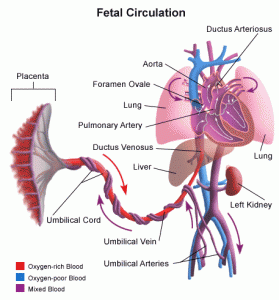I’m anxious to see the documentary “Babies” (see clip below), that chronicles the first year in the lives of four babies from across the globe. However, I can’t help but wish that the producers would follow up with a sequel, “Toddlers.” And of course, “Teens” would also be an interesting film.
(In case you haven\’t seen it, here’s the Babies documentary promo.)
I’m still surprised by how frequently new moms express a fear of parenting a toddler; sometimes openly critical of other moms with older children. I see it in the blogosphere over and over. All this judgment coming from parents who are used to observing a contented baby cooing in a baby carrier. I can only smile and nod, while silently praying, “Give strength to this mother, Lord, because she will certainly need it!”
I have definitely struggled to let go of the baby years; I was pregnant with my second child shortly after the first started to walk. And while I will always love being around babies, I’ve also embraced the joy of each passing milestone. This week, my five-year-old daughter lost her first tooth. I shared her pride and happiness, despite my memories of rocking her when she was teething. My seven-year-old girl watched in awe as an older girl got her ears pierced; asking again when she can do this. (Not before age 10, which will be here before I know it.) And I’m not afraid to admit that I will be incredibly grateful to be done with the diaper phase!
MOM DARE: For moms who are still at the beginning of this journey, your challenge this week is to imagine your baby as a toddler, a preschooler and beyond (as far as you can fathom). What will you miss and what will you be happy to put behind you? Conjure up that first moment when your child hugs your neck and proclaims, “I wub you.” And most of all, I urge you to practice patience and tolerance of moms who are mothering children at different stages than your own. If you’re a mom who has moved beyond the baby years, take some time this week to look back on that first magical year with each of your children. Look through some old photos or baby books. Sometimes during a rough phase in parenting, it helps to remember your child as that toothless, cooing bundle of love.
Sharron Wright is the work-at-home mother of three girls, ages 2, 5 and 7. Her mission is to help other new parents feel empowered and to instill in them the confidence to care for their babies in a loving, positive way that respects the uniqueness of all children. Visit her at www.babylovecarebook.com.

 Hypothetically speaking, let’s pretend there is a parenting practice with the following attributes:
Hypothetically speaking, let’s pretend there is a parenting practice with the following attributes:




